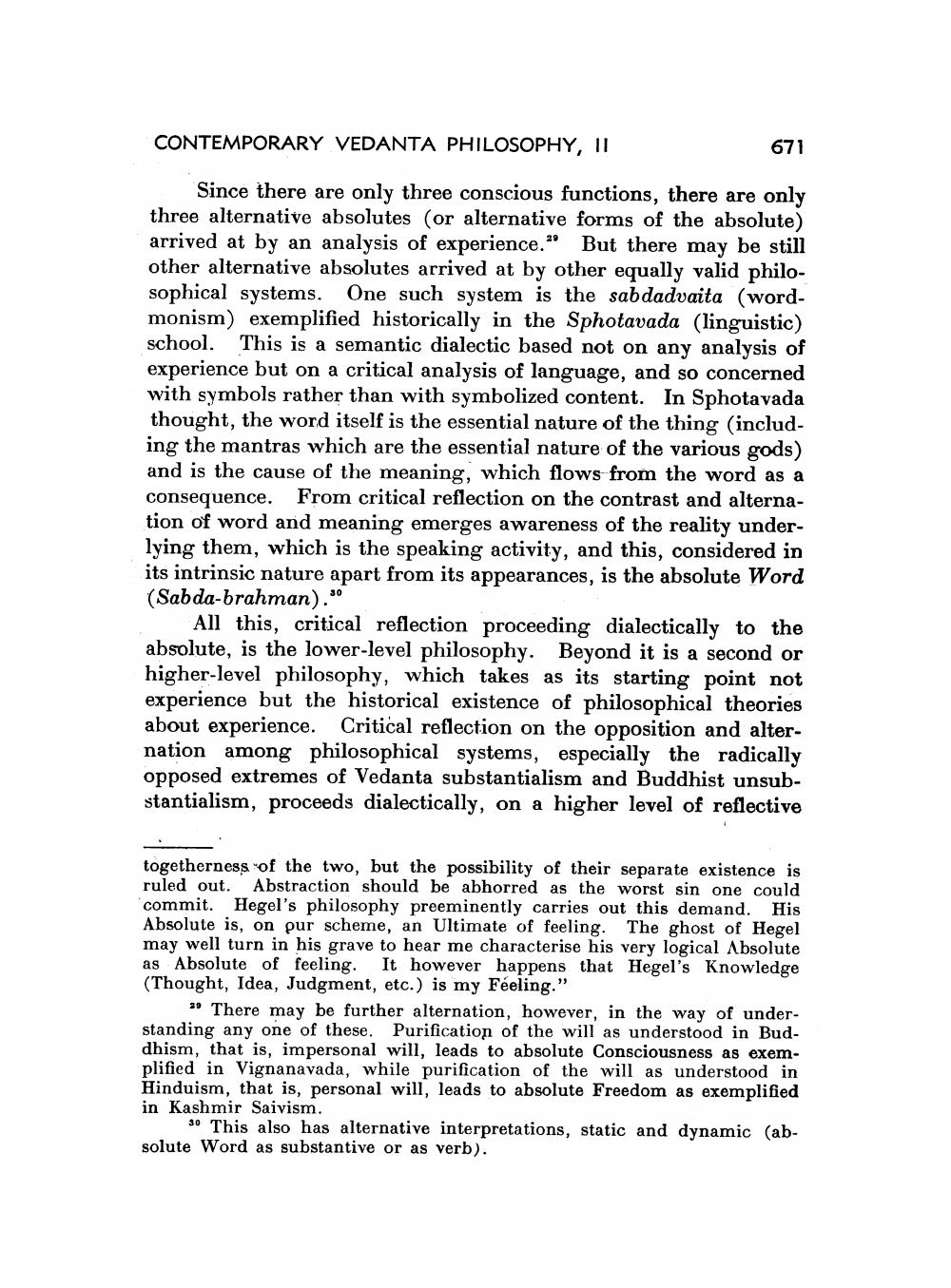________________
CONTEMPORARY VEDANTA PHILOSOPHY, 11
671
Since there are only three conscious functions, there are only three alternative absolutes (or alternative forms of the absolute) arrived at by an analysis of experience. But there may be still other alternative absolutes arrived at by other equally valid philosophical systems. One such system is the sabdadvaita (wordmonism) exemplified historically in the Sphotavada (linguistic) school. This is a semantic dialectic based not on any analysis of experience but on a critical analysis of language, and so concerned with symbols rather than with symbolized content. In Sphotavada thought, the word itself is the essential nature of the thing (including the mantras which are the essential nature of the various gods) and is the cause of the meaning, which flows from the word as a consequence. From critical reflection on the contrast and alternation of word and meaning emerges awareness of the reality underlying them, which is the speaking activity, and this, considered in its intrinsic nature apart from its appearances, is the absolute Word (Sabda-brahman)."
All this, critical reflection proceeding dialectically to the absolute, is the lower-level philosophy. Beyond it is a second or higher-level philosophy, which takes as its starting point not experience but the historical existence of philosophical theories about experience. Critical reflection on the opposition and alternation among philosophical systems, especially the radically opposed extremes of Vedanta substantialism and Buddhist unsubstantialism, proceeds dialectically, on a higher level of reflective
togetherness of the two, but the possibility of their separate existence is ruled out. Abstraction should be abhorred as the worst sin one could commit. Hegel's philosophy preeminently carries out this demand. His Absolute is, on pur scheme, an Ultimate of feeling. The ghost of Hegel may well turn in his grave to hear me characterise his very logical Absolute as Absolute of feeling. It however happens that Hegel's Knowledge (Thought, Idea, Judgment, etc.) is my Feeling."
*There may be further alternation, however, in the way of understanding any one of these. Purification of the will as understood in Buddhism. that is impersonal will, leads to absolute Consciousness as exemplified in Vignanavada, while purification of the will as understood in Hinduism, that is, personal will, leads to absolute Freedom as exemplified in Kashmir Saivism.
30 This also has alternative interpretations, static and dynamic (absolute Word as substantive or as verb).




